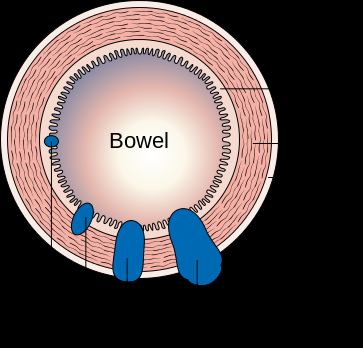
Obesity in adults and inflammation are known to be associated with a higher risk of colorectal cancer. Now, a study has found associations between both obesity and inflammation in older teenagers and an elevated risk of developing colorectal cancer later in life.
The associations between obesity and colorectal cancer and inflammation and colorectal cancer were independent of each other. The study found an association between body weight and inflammation and colorectal cancer, but not a cause-and-effect relationship.
The study looked at data collected on nearly 240,000 Swedish men who had undergone medical examinations while they were between the ages of 16 and 20. The exams were performed between 1969 and 1976, when Sweden had compulsory military enlistment. The height and weight of the men was recorded, as was their erythrocyte sedimentation rate, which can serve as a measure of inflammation. A little over 6% of the young men were overweight and only 1% was obese.
The teens and young men were then matched to Sweden's national cancer registry and they were followed for colorectal cancer through the end of 2009. By that time, 855 of the men had been diagnosed with colorectal cancer.
The researchers calculated the body mass index (BMI) from the information about height and weight. The men who had had a BMI of 27.5 to 30 during late adolescence, considered to be the upper range of being overweight, had a risk level that was 2.08 times that of those who were normal weight then (a BMI of 18.5 to 25). The men who had a BMI that indicated they had been obese in late adolescence (a BMI of 30 or above) had a risk level that was 2.38 times that of those who were normal weight then.
Those teens and young men who had a higher erythrocyte sedimentation rate had a 63% higher risk of developing colorectal cancer than those who had a lower erythrocyte sedimentation rate.
The study was published in the journal Gut.

